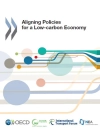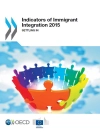The Sustainable Development Goal (SDG) 8 aims to promote sustained, inclusive and sustainable economic growth, full and productive employment and decent work for all. The twelve associated targets call for action in a number of interconnected domains that are of great relevance for global governance, international business, and international entrepreneurship. However, the Covid-19 pandemic and geopolitical issues such as war, the climate crisis and associated humanitarian catastrophes highlight just how fragile progress towards inclusive and sustainable growth is. Global disruptions in supply chains and an increase in national protectionism prompts questions whether global value chains should be shortened and re-localised to reduce risks. This book examines the policy issues and practitioner perspectives on the role of International Business in the achievement of SDG 8 targets in the current global climate. Covering topics such as the technological upgrading and innovation, the formalisation and growth of micro-, small-, and medium-sized enterprises, the decoupling of economic growth from environmental degradation as well as from the exploitation of workers and employees including women, children, migrants, persons with disabilities and other minorities, this is a vital resource for scholars and students interested in exploring international business and grand societal challenges.
Tabella dei contenuti
Part I. Introduction to International Business and SDG 8.- 1. International Business and SDG 8: An introduction to the theme.- 2. International Business and SDG8: are we on course?.- Part II. Research perspectives on SDG 8.- 3. Labour standards provisions in international trade policy: An international business perspective.- 4. Corporate commitment to decent work and sustainable development: a quantitative analysis of corporate reports of DAX 40 MNCs.- 5. MNE Intercession, Antitrust, and Supply Chain Slavery: A New Regulatory Strategy to Realise SDG 8.7.- 6. Hiding in Plain Sight – Transparency and Ethics in Fashion Industry Global Value Chains.- 7. MNEs and disadvantaged communities in emerging markets: Paths to SDG8.- 8. The role of foreign multinational corporations in innovation capability upgrading of subnational peripheries.- 9. Blockchain technology adoption for economic and social upgrading.- 10. Circular economy and social upgrading in global value chains: An analytical perspective on social upgrading in the Global South.- 11. Sustainability in entrepreneurial ecosystems going global.- 12. Towards a typology of governance mechanisms in cross-sector partnerships based on multiple agency theory.- 13. A microfoundational framework of institutions: Knowledge transfer in traditional crafts for sustainable economic growth.- 14. Reviewing worker and producer cooperative contributions toward SDG8 in developing and developed economies.- Part III. Teaching Perspectives on SDG 8.- 15. Embedding diversity, equity, and inclusion (DEI) in international business education.- 16. The role of external context in enhancing student learning outcomes through experiential learning.- 17. Examining modern slavery through design thinking in the international business classroom.- Part IV. Practitioner Reflections on SDG 8.- 18. SDG 8 and the case for local valuecreation in Africa’s food value chains.- 19. European migration, where are we going and how to improve integration?.- 20. Post Brexit trade and investment and the implications for Scottish businesses: some reflections.- 21. SDG 8 – A reflection on policies, programmes, and the gaps within.
Circa l’autore
Noemi Sinkovics is Reader in International Business at University of Glasgow, Adam Smith Business School, UK, and Visiting Professor at University of Vaasa, Inno Lab, Finland.
Rudolf R. Sinkovics is Professor of International Business at University of Glasgow, Adam Smith Business School, UK, and Visiting Professor at LUT University, Finland.
Mehdi Boussebaa is Professor of International Business at University of Glasgow, Adam Smith Business School, UK, where he also leads the International Business and Enterprise Research Cluster.
Margaret Fletcher is Professor of International Business at University of Glasgow, Adam Smith Business School, UK. She is member of the School’s Senior Leadership Team, Co-head of Management Subject.












